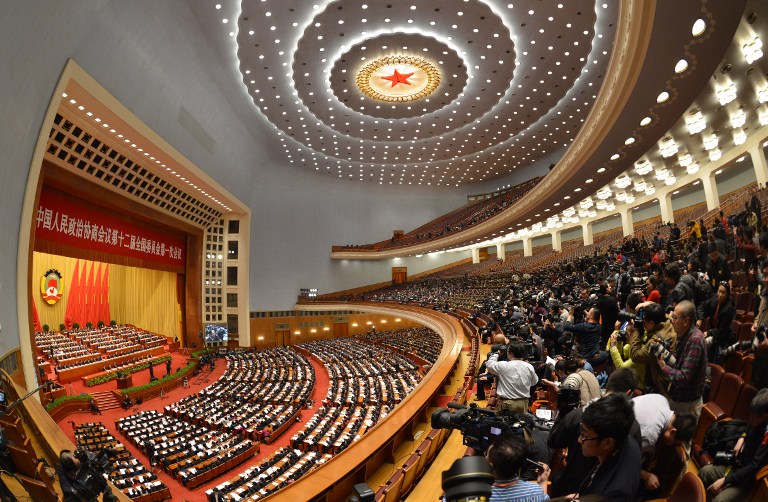SUMMARY
This is AI generated summarization, which may have errors. For context, always refer to the full article.

BEIJING, China – China announced a further double-digit rise in its defense budget Tuesday, March 5, underlining its military ambitions with Beijing embroiled in a series of territorial disputes with its neighbors.
“China plans to raise its defense budget by 10.7 percent to 720.2 billion yuan” ($115.7 billion) in 2013, according to a government report to be reviewed by the National People’s Congress (NPC), the country’s legislature.
The pace of the increase represents a slight slowdown from the 11.2 percent figure announced in 2012 and 12.7 percent the year before but is part of a trend of substantial rises that have come alongside strong economic growth.
China’s military spending has triggered concern across Asia and in Washington, with experts saying the totals actually spent are substantially higher than those publicly announced.
The increases are a particularly sensitive topic in neighboring countries as China takes a more assertive stance on long-simmering territorial rows.
Beijing and Tokyo have both scrambled jets near disputed islands in the East China Sea administered by Tokyo but claimed by China. Beijing is also at odds with Southeast Asian countries over islets in the South China Sea.
China began revamping the People’s Liberation Army — the one-time ragtag peasant force formed in 1927 by the Communist Party — after a troubled 1979 incursion into Vietnam, when the neighbors vied for influence over Southeast Asia.
Last year the navy took delivery of its first aircraft carrier, the Liaoning, and it has also developed stealth fighter and anti-satellite capabilities.
According to an advance text of his speech, China’s premier Wen Jiabao was to tell the NPC, which opens Tuesday: “We should accelerate modernization of national defense and the armed forces so as to strengthen China’s defense and military capabilities.
“We should resolutely uphold China’s sovereignty, security and territorial integrity and ensure its peaceful development.”
Arthur Ding, an expert on China’s military at National Chengchi University in Taiwan, said that the double-digit growth was not surprising given the country’s rapid economic rise and upgrading of its armed forces.
“On the one hand, China’s economic growth rate is able to afford such double-digit growth,” he said.
“On the other hand, across-the-board modernization and development of defense systems… require massive investment,” he said, citing warships, jet fighters, an aircraft carrier and an anti-satellite system.
“It will take a tremendous amount of money.”
Tuesday’s report said that in addition to ensuring national security, the budget would go towards making the military more “information-based” and improving the lives of personnel.
“Funds will be used to support efforts to improve the working and living conditions of officers and enlisted personnel, make the armed forces more mechanized and information-based,” it said.
In a departure from normal practice, the legislature had declined to announce the 2013 defense budget at a press conference on Monday, when NPC spokeswoman Fu Ying responded with frustration when she was asked about the topic.
“It seems China has to explain every year to the outside world why we should strengthen national defense and why we should increase the military budget,” she said.
Fu, a vice foreign minister and former ambassador to Britain, added: “China’s national defense policy has always been peaceful and defensive.
“We strengthen national defense to defend ourselves and to protect security and peace, but not to pose a threat to other countries.” – Rappler.com
Add a comment
How does this make you feel?
There are no comments yet. Add your comment to start the conversation.